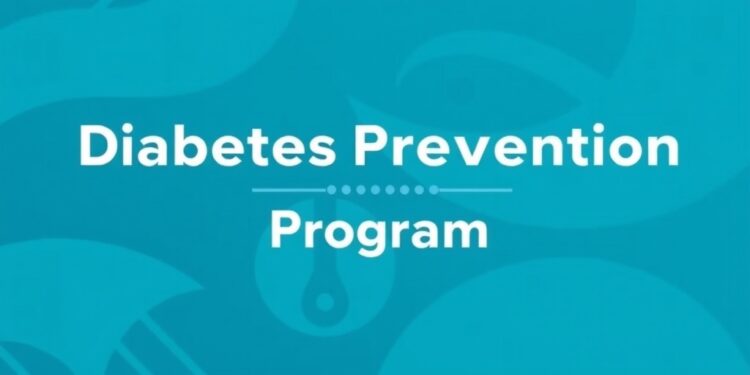The Stalwart Fight Against Type 2 Diabetes Faces New Threats: Funding Cuts to Critical Research Programs
In a disheartening development, the ongoing research initiative primarily concentrating on the prevention of type 2 diabetes—the Diabetes Prevention Program (DPP)—has seen an abrupt cessation due to recent cuts in government funding. The DPP, launched in 1996 by the National Institutes of Health (NIH), has significantly contributed to our understanding of how lifestyle modifications and medications can stave off one of the most pervasive chronic diseases of our time. As the Endocrine Society highlights the critical nature of this work, it raises alarm bells regarding the potential ramifications for millions of Americans grappling with diabetes and prediabetes.
Founded with the aim of acting as a countermeasure against the diabetes epidemic, the Diabetes Prevention Program has demonstrated that modest lifestyle changes, such as a 5%-7% reduction in body weight, can reduce the risk of developing type 2 diabetes by an astounding 58%. This pivotal finding has not only transformed the understanding of diabetes management but has also provided a pathway for preventive strategies that could be adopted by at-risk populations.
The importance of the DPP doesn’t merely rest on preventing diabetes. The associated DPP Outcomes Study has expanded its horizons to investigate the long-term effects of diabetes prevention, delving into connections with other grave health concerns such as Alzheimer’s disease, dementia, cancer, heart disease, stroke, nerve damage, kidney disease, and eye disease. By tracking the health of over 3,100 former participants from the original DPP cohort since 2002, the Outcomes Study enriches the landscape of chronic disease research with valuable long-term data.
According to the U.S. Centers for Disease Control and Prevention (CDC), approximately 38.4 million Americans were diagnosed with diabetes as of 2021, accounting for 11.6% of the total population. Coupled with the nearly 97.6 million adults exhibiting signs of prediabetes, these staggering figures underscore the urgency of preventive measures.
As the burden of diabetes continues to escalate, the economic implications also become increasingly dire. The CDC estimated that the direct and indirect costs associated with diagnosed diabetes cases reached around $413 billion in 2022 alone. This financial strain emphasizes the necessity of initiatives like the DPP, which not only aim to prevent diabetes but also mitigate associated health care costs resulting from complications of the disease itself.
In light of these alarming statistics, the cessation of research funding for the DPP appears shortsighted at best and catastrophic at worst. The Endocrine Society has voiced its discontent with the latest funding cuts, urging the administration to recognize the detrimental consequences of eliminating this essential research endeavor. The Society emphasizes that supporting ongoing diabetes prevention research should align with the nation’s commitment to combat chronic illnesses and promote public health.
While diabetes prevention strategies have proven effective, the dousing of funding signals a potentially regressive step in addressing the diabetes epidemic. The DPP and its outcomes research represent decades of knowledge that have equipped health care providers with essential tools to combat diabetes. Without continued funding, the progress made thus far could threaten to unravel.
The loss of the DPP is not merely a setback for researchers, but rather a grave concern for patients who rely on emerging treatments and preventive strategies. The collaborative efforts across 30 institutions in 21 states foster a rich environment for scientific exploration and impactful health interventions. Cutting off funding disrupts this vital research tapestry, jeopardizing the health of millions while simultaneously undermining the progress made in diabetes management and prevention.
Public health advocates and policymakers must pay heed to the call of the Endocrine Society. The organization serves as a staunch proponent for ongoing diabetes research, understanding that the implications extend far beyond individual health. In an era where chronic diseases pose unprecedented challenges, breaking the momentum of research could reverberate across the healthcare system, ultimately obstructing broader efforts to improve population health.
In the international context, the need for diabetes research extends beyond American borders. As diabetes rates continue to rise globally, studies like the DPP provide frameworks for other nations grappling with similar health crises. The cessation of such pivotal research could send ripples throughout global health initiatives that aim to address chronic conditions like diabetes.
There is hope yet; voices from the scientific community, including the Endocrine Society, have consistently worked to put pressure on government entities to prioritize funding for vital health research. Mobilizing public support through awareness and advocacy can compel governmental agencies to restore funding to the DPP, reaffirming a commitment to tackle diabetes head-on and ushering in a new era of progressive health strategies.
As the fight against diabetes evolves, the dialogue surrounding funding for essential research programs needs to remain at the forefront of public consciousness. Making informed health decisions relies heavily on the data generated by studies like the DPP. Sustaining financial investment in this research is not only a necessity for today’s health landscape but a promise for future generations.
Thus, the call is clear: we must rally together, advocate for continued support of crucial diabetes prevention initiatives, and confront the health crises plaguing our populations. In doing so, we affirm a commitment to health, wellbeing, and a future free from the grips of preventable diseases.
Subject of Research: Diabetes prevention, specifically the Diabetes Prevention Program (DPP).
Article Title: The Stalwart Fight Against Type 2 Diabetes Faces New Threats: Funding Cuts to Critical Research Programs
News Publication Date: October 2023
Web References:
References: None provided in the original text.
Image Credits: No images available or referenced.
Keywords: Type 2 diabetes, diabetes prevention, chronic disease, public health, DPP Outcomes Study, funding cuts, NIH, healthcare costs, metabolic health.




